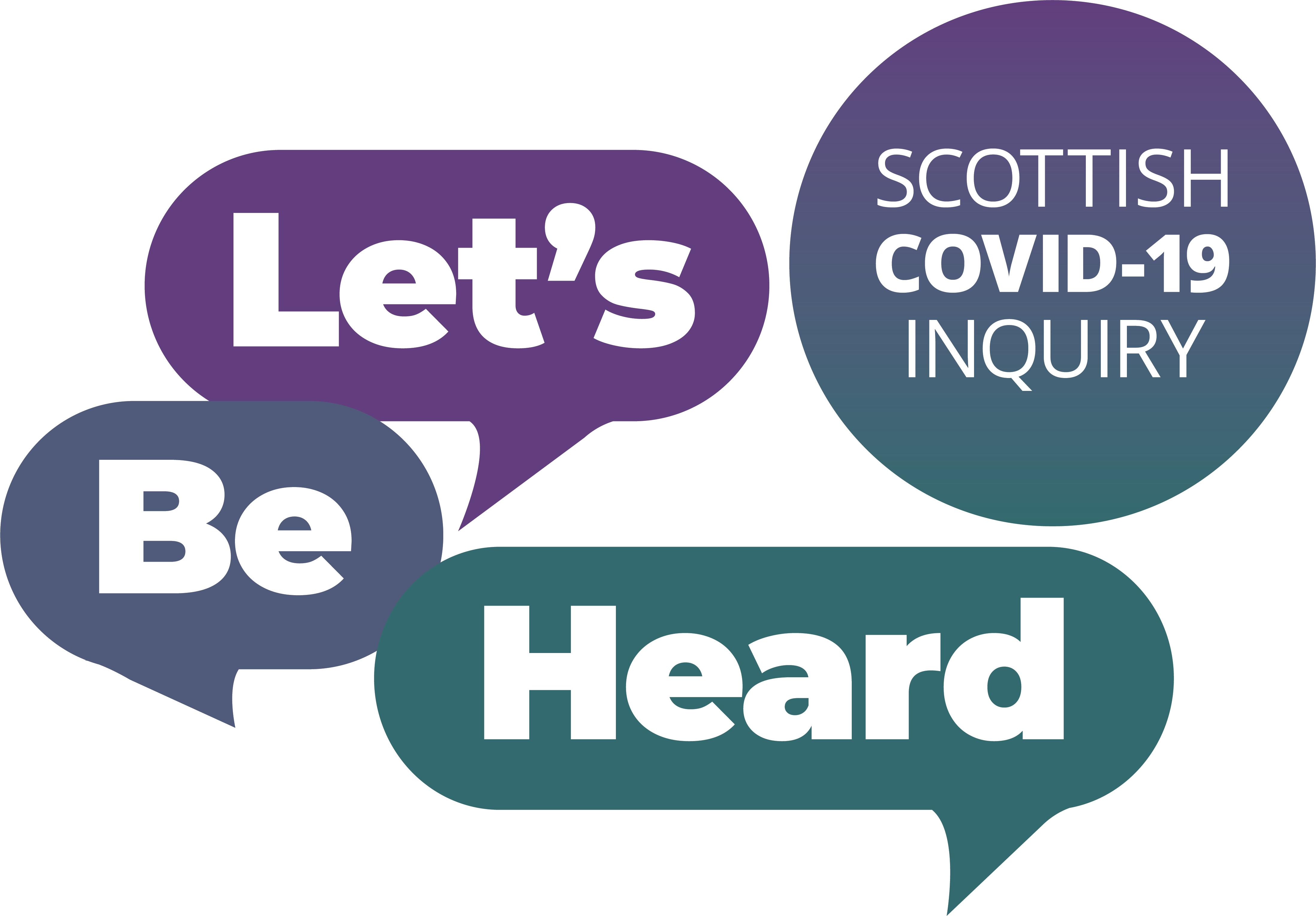Scottish and UK COVID-19 Inquiries
Differences between Scottish and UK Inquiries
In this short video, Ian Duddy, the Scottish COVID-19 Inquiry's Chief Executive, talks about the main differences between the two inquiries, including the periods they are investigating, their respective Terms of Reference and public hearings.
Should I share my experiences with the Scottish COVID-19 Inquiry or UK Covid-19 Inquiry listening project?
Both inquiries are inviting members of the public to share their experiences through a dedicated process. These are:
- The Scottish COVID-19 Inquiry – Let’s Be Heard: Sharing Scotland’s COVID Experience
The UK Covid-19 Inquiry – Every Story Matters
You are welcome to share your experiences with both inquiries.
Public inquiries can only investigate the areas set out in their Terms of Reference.
Both the Scottish COVID-19 Inquiry and UK Covid-19 Inquiry are bound by their respective Terms of Reference and there will be occasions where the inquiries will consider the same issues, including where those matters are devolved.
The areas the Scottish Inquiry is investigating broadly relate to the devolved areas of health, education, welfare assistance and financial support. They do not cover areas such as vaccine safety or international travel and border controls, which are matters for the UK Inquiry. Below is an illustration of the areas the Scottish Inquiry is investigating:

If you are unsure which inquiry relates to the particular experiences you wish to share and the lessons you believe should be learned, you can read the Scottish COVID-19 Inquiry’s Terms of Reference, and the UK Covid-19 Inquiry’s Terms of Reference. You may find it helpful to compare them to help you decide whether to submit your experience to the Scottish Inquiry, UK Inquiry, both, or neither.
Please note, the Scottish COVID-19 Inquiry’s Terms of Reference relate to the period from 1 January 2020 to 31 December 2022, whereas the UK Covid-19 Inquiry’s Terms of Reference cover the period up to, and including, 28 June 2022.
How are the two inquiries working together?
We are working closely with Every Story Matters to ensure that engaging with either process is as seamless as possible.
You’ll note that our central questions are quite similar, so that you can copy and paste your responses if you would like to engage with the other Inquiry as well.
Both inquiries are committed to avoiding duplication. Our respective listening exercises, Every Story Matters and Let's Be Heard, will be actively taking account of each others' findings.
By doing so, we hope to put less pressure on people who may not wish, or find it difficult, to share their experiences twice.


